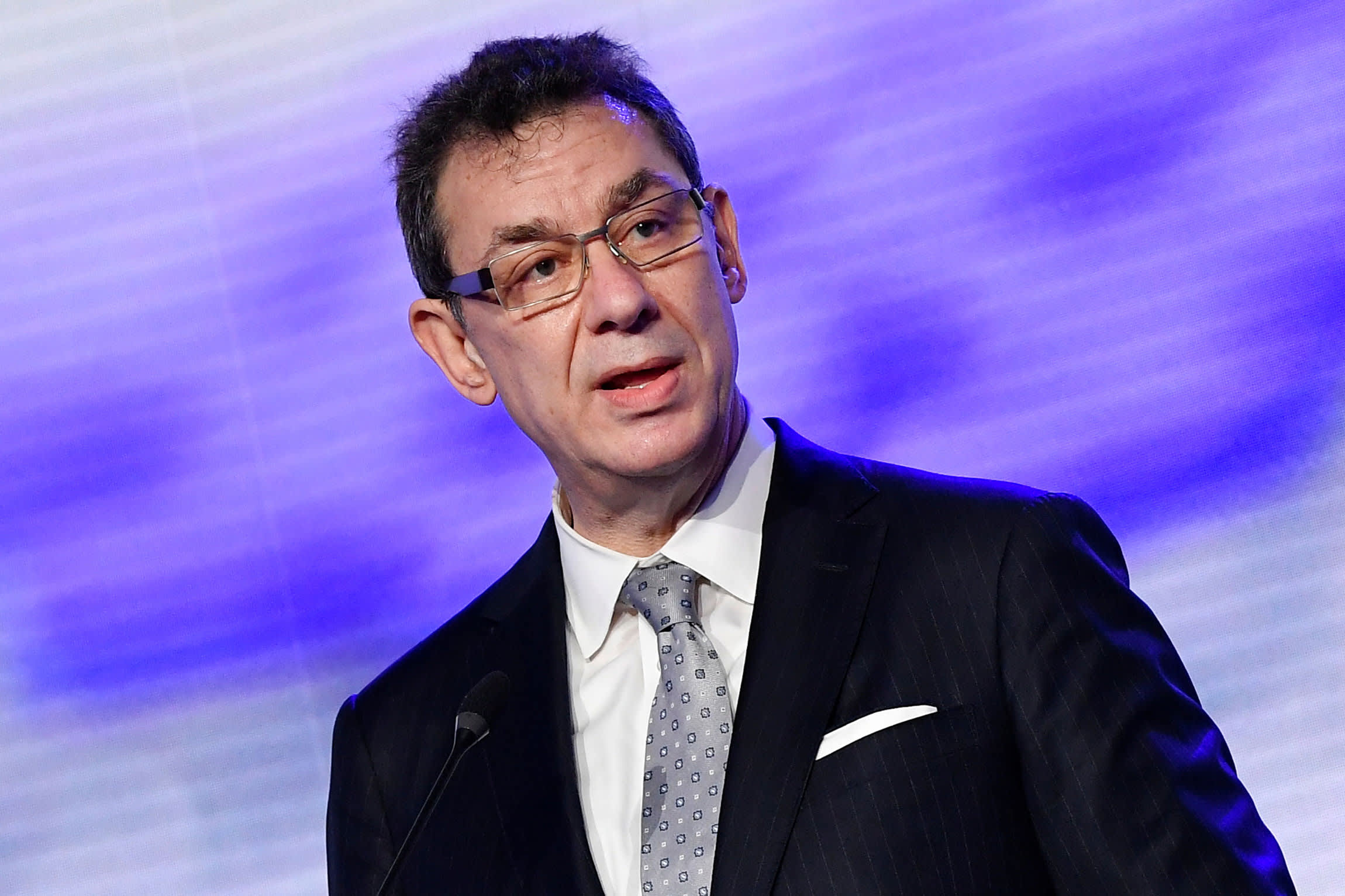Pfizer CEO Albert Bourla addresses a press conference after a visit to oversee the production of the Pfizer-BioNtech COVID-19 vaccine at the factor
Pfizer CEO Albert Bourla addresses a press conference after a visit to oversee the production of the Pfizer-BioNtech COVID-19 vaccine at the factory of U.S. pharmaceutical company Pfizer in Puurs, Belgium April 23, 2021.
John Thys | Pool | Reuters
Pfizer CEO Albert Bourla on Tuesday said the omicron variant of the virus that causes Covid-19 appears to be milder than previous strains, but also seems to spread faster and could lead to more mutations in the future.
“I don’t think it’s good news to have something that spreads fast,” Bourla told The Wall Street Journal during an interview at the paper’s CEO Council Summit. “Spreads fast means it will be in billions of people and another mutation may come. You don’t want that.”
White House chief medical advisor Dr. Anthony Fauci said reports over the weekend from South Africa suggest omicron is not as severe as initially feared, while noting that more data is needed to fully assess the risk posed by the variant.
The South African Medical Research Council, in a report released Saturday, said most patients admitted to a hospital in Pretoria who had Covid didn’t need supplemental oxygen. The report also noted that many patients were admitted for other medical reasons and were then found to have Covid.
Bourla cautioned that it is difficult to draw definitive conclusions from the wave of infection in South Africa right now. Just 5% of South Africans are over the age of 60, and younger people normally have milder cases of Covid. However, many people in South Africa are also HIV positive, which would presumably lead to more severe disease from Covid, he said.
The Pfizer CEO said he expects the number of confirmed omicron cases to surge from dozens to millions over the next few weeks.
“We will have a good understanding let’s say before the year end as to what exactly it means for clinical manifestation,” Bourla said.
Pfizer can develop a vaccine that targets omicron by March 2022, Bourla said, but it’s not clear yet whether there’s a need for a new shot. It will take a few weeks to determine whether the current vaccines provide enough protection against the variant, he said.
Bourla said Pfizer is confident that its oral antiviral medication, Paxlovid, will fight omicron and every other variant of the virus that has emerged so far. The pill inhibits an enzyme the virus needs to replicate, known as a protease.
Most of the virus’ mutations have occurred on the spike protein so far, the mechanism it uses to attach to human cells, Bourla said. Vaccines and antibody treatments that target the spike protein may need updates when mutations occur on that part of the virus, he said.
However, it’s much more difficult for the virus to mutate in a way where it can live without the protease enzyme that Paxlovid targets, he said.
“It’s very difficult for the virus to create a strain that can live without this protease,” Bourla said. “It’s not impossible. It’s very difficult.”
Bourla doesn’t expect the total elimination of Covid anytime soon, but he said society will start to view the virus like the seasonal flu as more people get vaccinated and more powerful treatments come to market.
“Once we get people vaccinated, once we get politics out of the equation — that’s the small problem,” Bourla said, noting that society will never reach 100% vaccination. “That’s why treatments unfortunately will be needed. But we can live normal lives. Normal lives means that you can go to restaurants and don’t need to wear masks and suffocate everyday.”
Bourla said he expects more normality next year “absent a variant that changes everything.”
“I think we were in a good path mid of next year to be having things under control,” he said.
www.cnbc.com
